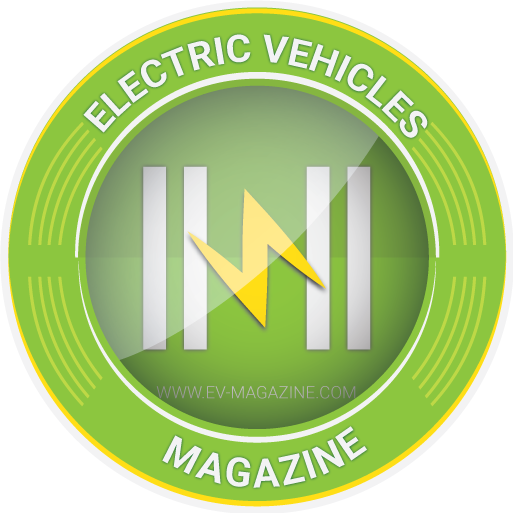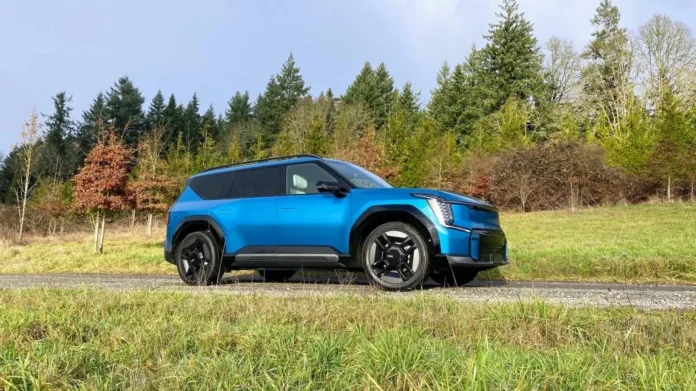Across the U.S. East Coast, nuclear power plant owners are proposing marriages to tech giants who are both desperate for electricity to fuel their massive data-center expansion plans and publicly committed to using clean energy. The proposals go like this: Build data centers that connect directly to our round-the-clock, carbon-free nuclear power, and secure long-term financial and clean-energy benefits for the both of us.
The companies looking to tie the knot say these are matches made in heaven. But a growing number of critics are objecting at the altar.
The first such announcement came in March, when Amazon Web Services agreed to spend $650 million to buy an existing 960-megawatt data center campus that’s already hooked up to Talen Energy’s 2.5-gigawatt Susquehanna nuclear power plant in northeastern Pennsylvania. Several similar proposals are in the works, with nuclear power plant owners Constellation Energy, Vistra, Dominion Energy, and Public Service Enterprise Group eyeing prospects, according to company statements and analyst reports.
Nuclear energy and tech company trade groups say these “colocation” projects will bring stability to a nuclear industry that provides the country’s largest share of zero-carbon energy. By allowing data centers to circumvent the overtaxed U.S. grid and get online faster, these linkups will also bolster U.S. competitiveness in artificial intelligence and other high-tech fields, they say, positioning the deals as a partial solution to the problem of meeting fast-rising electricity demand from industrial customers.
“Co-location with a nuclear plant offers potential benefits including the rapid deployment of these new businesses, reducing the pressure of building out additional transmission capacity, and ensuring that the integration costs are concentrated on the data center owner and not spread to other electricity users,” Matt Crozat, executive director of strategy and policy development for the Nuclear Energy Institute trade group, told Canary Media in an email.
But these claims face mounting scrutiny from energy analysts and climate advocates, who fear that a rush to divert existing zero-carbon nuclear energy to power-hungry data centers could end up raising ratepayer bills, reducing grid reliability, and increasing power sector emissions overall.
Those are the risks outlined in a July blog post by Jackson Morris, director of state power sector policy at the Natural Resources Defense Council. “We’re not anti–data center and anti–load growth,” Morris told Canary Media. “But we want to make sure that actions being taken don’t lead to negative impacts in terms of emissions reductions or costs to consumers.”
Lawmakers and regulators in Connecticut, Maryland, New Jersey, and Pennsylvania are raising similar concerns.
In Maryland, a proposed amendment to a broader utility regulatory reform bill would limit colocation at Constellation Energy’s Calvert Cliffs nuclear plant. In Connecticut, lawmakers leery of a plan to colocate a data center at Dominion Energy’s Millstone nuclear power plant, the source of 90 percent of the state’s carbon-free power, are considering ending incentives to draw data centers to the state.
The Federal Energy Regulatory Commission is also taking a closer look at these potential impacts. Earlier this month, FERC ordered further study of the interconnection agreement that would allow the Amazon-Talen project in Pennsylvania to move forward. The decision came after utilities Exelon and American Electric Power protested that the agreement could shift up to $140 million in costs per year onto customers served by mid-Atlantic regional grid operator PJM.
Beyond these cost and reliability threats, the potential climate impact of such deals is a concern, Morris said. When a new data center comes online, new electricity generation has to be built — either to support the facility directly or to plug the massive hole created when the data center siphons off electricity from an existing power source.
Unless those data center owners can build enough clean energy to make up that gap, that replacement power will largely come from existing fossil-fueled power plants. “When you flip that switch on a nuclear power plant, it’s being backfilled by gas in the near term,” he said.
Far better, Morris argued, would be for data center operators like Amazon, Google, Meta, and Microsoft to accelerate their already big renewable energy purchases, and to invest more heavily in batteries, geothermal power, and other emerging sources of round-the-clock carbon-free power.
“The solution is to be more proactive and enter into agreements to the maximum extent possible with additional new clean resources,” he said. But he also conceded that “that’s easier said than done.”
The counterargument for marrying data centers and nuclear power
Data center developers are in definite agreement on that last point. Their efforts to expand procurement of new solar, wind, and battery resources across the country are running into a familiar challenge: There’s not enough room on the grid to bring the new projects online.
Across the country, clean energy projects face yearslong wait times to connect to transmission grids. Similar bottlenecks in grid capacity are making it harder and harder for data centers to obtain the power they need.
Amazon has led the pack of corporate clean energy purchasers, with 8.8 gigawatts of power purchase agreements in 2023 alone, bringing its total clean energy portfolio to 33.6 gigawatts. But it is also seeking to supplement its wind and solar projects with “new innovations and technologies, and investing in other sources of carbon-free energy,” a company spokesperson said in a statement to Canary Media. “Our agreement with Talen Energy for carbon-free energy is one project in that effort.”
In that sense, Amazon’s deal with Talen represents a practical way to keep building data centers, a task fundamental to the firm’s revenue growth, despite the challenging environment for bringing new clean power online. That’s the perspective offered by Rich Powell, chief executive officer of the Clean Energy Buyers Association, a trade group representing corporations including Amazon, Google, Meta, and Microsoft.
And while the data center being built at the Susquehanna nuclear plant will be powered by zero-carbon electricity, Amazon isn’t saying that any of that power is new. “They are not claiming this transaction is additional,” Powell said, using a term of art for clean power being built in excess of what would have been brought online without corporate commitments to buy the power they generate — an important concept for adjudicating corporations’ clean energy claims.
Meanwhile, Amazon is “also building an enormous amount of renewable energy, everywhere they can,” Powell said. These underlying facts should shift the discussion about nuclear power plant colocation and corporate clean energy targets, he argued. “It’s not additional, but is it good? Is it better than the alternative?”
And on that point, Powell isn’t sure another true zero-carbon option existed.
“What could they have done that was zero-emissions, that was available this year, that was 500 megawatts, operating 24/7/365?” he asked. “That’s literally impossible to do in a footprint of this scale with wind and solar and storage.”
Instead, the likeliest alternative for Amazon’s new data center would have been to plug into the grid — if it could — and accept the mix of power that was available. In Pennsylvania, which is part of the regional grid managed by PJM, electricity mostly comes from fossil gas and coal plants. In many regions, plans to plug new data centers right into the grid are triggering utilities to propose building new fossil-gas-fired power plants.
Source link by Canary Media
Author Jeff St. John
#Data #centers #tap #existing #nuclear #power #good #bad







